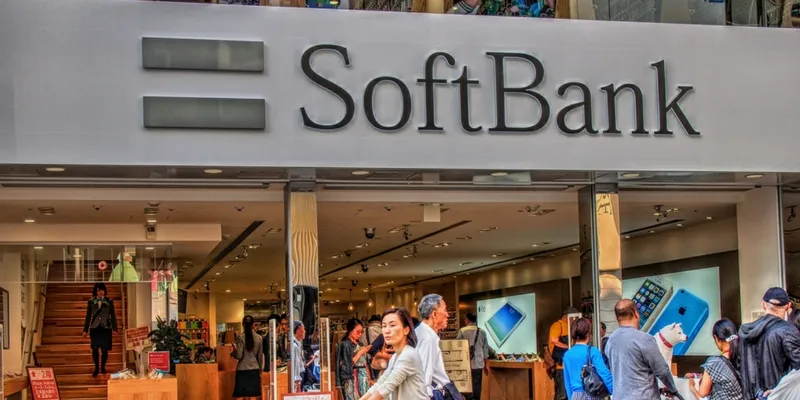SoftBank’s results could bring defence to the front
SoftBank’s poor annual results will likely be the validation that proponents of a defensive approach to investing were looking for.
What a difference a year makes.
Only 12 months ago, earned more profits in a quarter than any other Japanese company in history. Its billionaire founder Masayoshi Son had said then that the impressive earnings numbers were “lucky plus lucky plus lucky.”
Fast-forward to this week, and SoftBank will need a lot of that luck to bounce back from its biggest-ever loss in its four decades of existence. The Japanese conglomerate company’s two Vision Funds lost a massive $26.1 billion, pushing it into an annual loss of over $13 billion.

In the earnings call that followed, Masayoshi said he liked to be on the offensive but it was now time to play defence. “When it rains, you open an umbrella,” he explained.
While Masayoshi Son has been through worse and come back stronger, the world is bound to sit up and take notice when one of the most aggressive tech investors says it’s time to be cautious.
To be sure, the SoftBank results are not the trigger for the defensive approach already being adopted by an increasing number of startup investors, but it could be the validation that they needed.
And as a consequence, the metrics used to gauge the attractiveness of a startup investment will change.
“Winter is here,” said Sanjay Mehta, Founder of 100X.VC, a venture capital fund that invests in seed-stage startups. “VCs are becoming VCs again on discovering enduring all-weather businesses to invest.”
Saurabh Chandra, Managing Director of Boston Consulting Group India, said it is a signal for startups to look at profitability as one critical index, adding that they may have to look at capability rather than just scale. “This means building a significant IP that simply cannot be replicated by anybody else.”
A combination of global factors, such as higher inflation pushing interest rates upwards, rising crude prices, the war in Ukraine, and the tech crackdown in China, have spooked the global markets.
Added to this, the reopening of offices has meant that people spend less time in their homes, reducing their reliance on technology. As a result, tech companies, whose stocks valuations soared during the pandemic, have not been able to maintain their scorching pace of growth and are falling behind market expectations.
This is what led to SoftBank’s record losses.
“All funds that have a public market exposure will need time to recover. And while not unique to SoftBank alone, it means that the fund in itself will take a more cautious approach globally,” said Nruthya Madappa, Director of 3One4 Capital, an early-stage VC fund.
A late-stage investor told YourStory on condition of anonymity that any bull run will lose a bit of energy after five years. “And this isn’t going to turn around overnight,” he said.
But it’s not all gloom and doom.
BCG’s Saurabh said funding will not completely dry up for late-stage startups. “The late-stage funds will continue deploying at least for some time. In fact, in the macro-economic environments we are in, if somebody has a sustainable IP-oriented business, then late-stage funding will actually grow,” he added.
GV Ravishankar, Managing Director of Sequoia Capital India, said the market in India is significantly different. “We have always bet on Indian startups and the Indian market, and will continue to do so.”
He pointed out that for a founder it isn’t about markets being great or not, but a burning desire to start up. “Good companies will continue to be built irrespective of market conditions,” Ravishankar said. “We will remain consistent. If in a relatively high valuation environment the last 12-18 months we were active investors, we should logically be more active which allows you better quality investment.”
This is also backed by YourStory Research data, which show so far this year, investors have put in $13.1 billion through 665 deals in Indian startups. This is more than double of the $6.5 billion pumped into 361 startups between January and May 10 in 2021. Even April saw investments of $2.2 billion across 122 deals.
The rising interest rates could change this. Anuradha Ramachandran, Director of Flourish Ventures, which invests in fintech startups, said higher interest rates make the US markets seem “a little more lucrative” at the moment.
“There will be more money flowing into the public markets before it comes into the private investments,” she added.
And it could depend on the founders. “The hardest part of dealing with a low-cash situation is managing the founder's own psychology. They have to manage their own anxiety to not be overly negative about the future while controlling the expenses,” said 100X.VC’s Sanjay. “These are the times when founders who have maintained good investor relations will get access to resources and directions to tide through the tough times.”
Even in SoftBank’s case, Masayoshi said as recently as December 2021 that he believes in India. Also, Delhivery’s initial public offer sailing through on Friday will add a bit of cheer in an otherwise tepid week for SoftBank, which has invested in the logistics startup.
One would have to wait and watch if Masayoshi’s new defensive play will lead to a funding slowdown in India-focused investments from SoftBank. But for the sake of those trying to raise capital, one hopes Masayoshi’s umbrella remains closed while coming to India.
Edited by Jarshad NK








